Committee member Senator Rosen has been a leading voice supporting the nonprofit pharmaceutical model
San Francisco, CA – Earlier this week, the United States Senate Health, Education, Labor, and Pensions (HELP) Committee advanced the Food and Drug Administration Safety and Landmark Advancements (FDASLA Act/ S. 4348) Act to the full Senate floor with broad bipartisan support, adding two critical amendments spearheaded by Committee Members Jacky Rosen (D-NV) and Mitt Romney (R-UT). One amendment would direct the Government Accountability Office (GAO) to conduct a report on the impact that nonprofit drug companies would have on lowering drug costs, addressing drug shortages, and accelerating the development of new drugs. The report would also look at existing barriers to the success of nonprofit pharmaceutical organizations, and what Congress can do to support them. The second amendment would instruct the U.S. Food and Drug Administration (FDA) to hold a public meeting on the value of nonprofit drug organizations, how those nonprofits can help address patient access issues, and whether future user fee processes should be altered to better support their work.
Statement from Autumn Ehnow, Executive Vice President, Policy and Strategic Market Access at Medicines360
“We are grateful to Chair Murray, Sen. Rosen, and Sen. Romney for their leadership in including these critical amendments in the FDASLA Act. Nonprofit pharmaceutical organizations like ours serve as a bridge to better health by serving the public, building health equity, and filling gaps in access. Without the need to maximize profits for shareholders, nonprofits can focus on how best to stabilize supply, lower costs and improve access for people across the country. Expanding access to critical medicines and devices is at the heart of our work, and we are confident this report and public meeting will display the incredible value of that mission.”
In May, Sens. Rosen and Romney introduced S.4341, standalone legislation that would call for the same GAO report included among this week’s amendments. With the addition of these amendments, the FDASLA Act becomes the fourth piece of legislation in the 117th Congress that would support the work of nonprofit pharmaceutical organizations. Sen. Rosen has been a leading champion for the nonprofit pharmaceutical model and the driver of this congressional momentum. In 2021, Sen. Rosen introduced the Expanding Access to Affordable Prescription Drugs and Medical Devices Act (S.2257), which would improve the ability of nonprofit pharmaceutical organizations to sustainably provide affordable medicines to U.S. patients in a number of ways. It would clarify their ability to qualify for federal tax-exempt status, provide financial support to nonprofits working to develop and manufacture needed drugs, waive burdensome Food & Drug Administration (FDA) user fees, and provide new opportunities for priority FDA review for certain drugs made by nonprofits.
About Medicines360
Medicines360, located in San Francisco, California, is a global nonprofit women’s health pharmaceutical organization with a mission to remove cost as a barrier to health by developing and providing affordable women’s health products. Medicines360 is committed to working with healthcare providers, advocacy groups and patients to deliver innovative and meaningful treatments that help women around the world have greater access to the medicines they need. For more information, visit www.medicines360.org
Press Contact: Stacey Manley
Vice President, Communications & Marketing
smanley@Medicines360.org 415.951.8700

